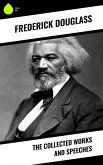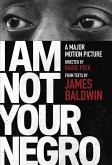In "The Story of My Life and Work," Booker T. Washington offers a compelling narrative that intertwines his personal experiences with profound insights into the complexities of race relations in post-Civil War America. Written in an autobiographical style, Washington's work reflects the literary conventions of the early 20th century, blending evocative storytelling with didactic elements. The text serves as both a memoir and a philosophical treatise, emphasizing themes of self-help, education, and the pursuit of opportunity amidst adversity, ultimately embodying the spirit of the Tuskegee Institute, which he helped to establish. Booker T. Washington, a former enslaved person who rose to prominence as a leading African American educator and advocate, draws on his own life experiences to shape the narrative. His commitment to vocational training and economic self-reliance stemmed from his belief that education was the key to uplifting the Black community. Washington's experiences as a child in the South and his journey to becoming a prominent voice for African Americans inform his reflections on hard work and perseverance, making his story not only personal but also a crucial part of American history. I highly recommend "The Story of My Life and Work" for readers seeking an authentic perspective on the struggles and triumphs of African Americans during a pivotal period in U.S. history. Washington's eloquence and clarity of thought make this book an essential addition to anyone's understanding of the socio-cultural landscape of the time, and it remains a powerful testament to the enduring spirit of resilience.
Dieser Download kann aus rechtlichen Gründen nur mit Rechnungsadresse in A, B, BG, CY, CZ, D, DK, EW, E, FIN, F, GR, HR, H, IRL, I, LT, L, LR, M, NL, PL, P, R, S, SLO, SK ausgeliefert werden.









